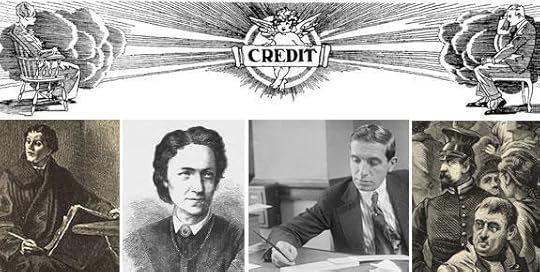Carl E. Olson's Blog, page 231
March 14, 2012
Ignatius Press "Quotables"
There are now thirty (or more) Ignatius Press "Quotables" available on the Ignatius Press Facebook page; here are four of my favorites:
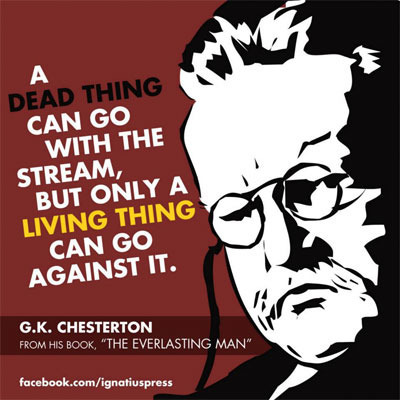
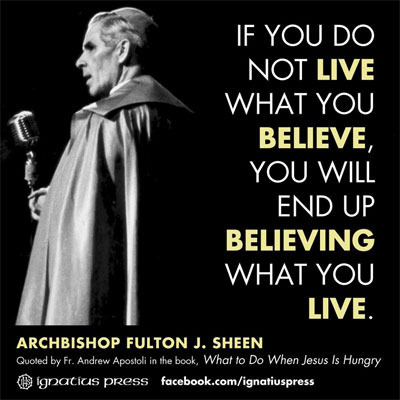
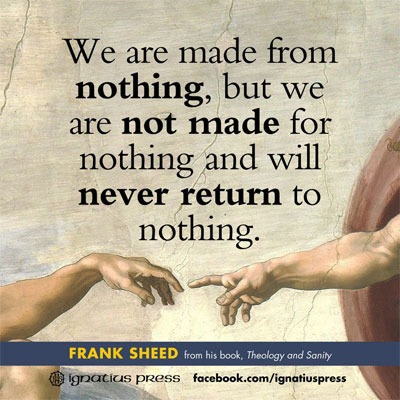
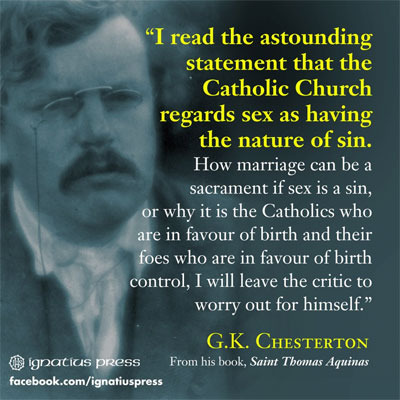
March 13, 2012
Jay Richards, co-author of "Indivisible", on Catholic-Protestant cooperation
Here are two recent videos of Jay Richards, co-author with James Robison of Indivisible: Restoring Faith, Family and Freedom Before It's Too Late, discussing how he, a Catholic, and Robison, an Evangelical, came to write the book together:
In this second video, Jay talks with Randy Robison, the son of James Robison, about Catholic-Protestant relations and cooperation:
For more about Indivisible, visit the book's website.
Dionne's dutiful dance and those devilish details
When the HHS mandate was first delivered from on high, it so shocked and stunned many Catholics that something rather exceptional occured: for a few moments—even a few days, in a handful of remarkable cases—some of the most openly dissenting, cave-in Catholics were startled awake by the brazen attack leveled by the Obama administration on religious liberty. Some, such as E. J. Dionne, Jr., awoke from their ideological slumber and stumbled to the edge of reality's bright light and blurrily wondered how the most thoughtful, moderate, and Catholic-friendly President in the history of humanity could ever make such a dreadful blunder:
One of Barack Obama's great attractions as a presidential candidate was his sensitivity to the feelings and intellectual concerns of religious believers. That is why it is so remarkable that he utterly botched the admittedly difficult question of how contraceptive services should be treated under the new health-care law. His administration mishandled this decision not once but twice. In the process, Obama threw his progressive Catholic allies under the bus and strengthened the hand of those inside the church who had originally sought to derail the health care law.
But even as Dionne warily breathed in the fresh air from outside his liberal echo chamber, he admitted being still conflicted about the matter because the clash between "women's rights" and "religious pluralism" didn't seem to have an easy answer:
As a general matter, it made perfect sense to cover contraception. Many see doing so as protecting women's rights, and expanded contraception coverage will likely reduce the number of abortions. While the Catholic Church formally opposes contraception, this teaching is widely ignored by the faithful. One does not see many Catholic families of six or ten or twelve that were quite common in the 1950s. Contraception might have something to do with this.
Speaking as a Catholic, I wish the church would be more open on the contraception question. But speaking as an American liberal who believes that religious pluralism imposes certain obligations on government, I think the church's leaders had a right to ask for broader relief from a contraception mandate that would require it to act against its own teachings. The administration should have done more to balance the competing liberty interests here.
Fortunately for Dionne, the Obama administration came through with an "accommodation" that gently—paternally, even—turned him away from the startling sunlight and nudged him back toward the cozy confines of his progressive Catholic cave, where he could return to his main work: sniping with indignation at Catholics not taken in by the President's cynical shell game. Yesterday, Dionne double-checked the shades, cursed the light, and fired off some of the same tired, left-wing-ish salvos that have long been a matter of pride for those Catholics more interested in the amorphous entity called "social justice" than dealing with actual assaults on, well, social justice:
The nation's Roman Catholic bishops will make an important decision this week: Do they want to defend the church's legitimate interest in religious autonomy, or do they want to wage an election-year war against President Obama?
And do the most conservative bishops want to junk the Roman Catholic Church as we have known it, with its deep commitment to both life and social justice, and turn it into the tea party at prayer?
This sort of rhetoric is decidedly unserious and misleading. Is Dionne really assuming, against all evidence, that the Obama administration is working in perfectly good faith, but that the bishops (all of whom—every single one—has spoken against the mandate and accommodation) are acting in bad faith and with poor judgment?
False Profits: The Ponzi scheme and spiritual impoverishment
False Profits | John B. Buescher | Catholic World Report
A cautionary history of the Ponzi scheme, and what it tells us about our spiritual impoverishment.
I. Payoff at Infinity
In 1933, at the height of the worldwide economic depression, G. K. Chesterton wrote, "The modern world began by Bentham writing the Defense of Usury." He was referring to Jeremy Bentham's 1787 essay rejecting any state-imposed limit on interest rates. Bentham's contemporary, Adam Smith, the father of free markets, nevertheless recommended such a limit, fearing that without it, profligates and projectors, which is to say, speculators, would suck up more and more money into riskier and riskier future "projections."
Bentham's paean to credit had more than a whiff of utopia about it. The idea was to put behind us the inhibitions we had about usury so that capital could be liberated to bloweth where it listeth, to be invested in innovation, in change, and so, in effect, in the future. Mere individual charity would be replaced by a centrally directed but abstract "Philanthropy." Without limits on interest rates, the future itself could be liberated from the constraints of the past and the present. Through investment, the future could be gathered up and harvested now. It was a financial form of a secular messianism, through which mankind would initiate a new heaven on earth, rather than waiting on Providence to do it.
Like other universal projects of the Enlightenment, it was in fact an illuminatio praecox, a Premature Enlightenment. It lacked a grasp of the richly paradoxical view of salvation that the Catholic Church has sought to keep before her: we are already saved, but the judgment is yet to come and at a time be decided by God. Christ has already redeemed us, but Christ will come again in judgment. Grace already flows to us freely, but there are also works to be done, sufferings to be borne, and consequences from our actions to be endured. Heaven is here and heaven is not yet here. We stand at the intersection of Time and Eternity, the finite and the infinite—which is to say, the Incarnation—and we cannot ignore either.
Nor can we ignore the consequences of Original Sin, which blights all man's projects with pride, until at their harvest when they are thrown into the fire. In this fallen world, what we call thievery is a sin. In the heaven of limitless credit, it is merely a transfer payment, a redistribution of wealth in the interest of egalitarian fairness.
As Bentham's predecessor Bernard de Mandeville put it in his 1705 Fable of the Hive, thievery increases the velocity of the money taken. That is a good thing for society inasmuch as the thief would then put it into circulation buying things for himself—whores, in Mandeville's provocative example, who would then pay their butchers and their grocers, who would then pay their blacksmiths, and so on. Organized thievery then would be a kind of stimulus package focused on job creation. Mandeville, it appears, neglected the fact that butchers, blacksmiths, grocers, and farmers would not stay around a place overrun by thieves, highwaymen, bounty hunters, and whores.
Bentham's financial alchemy would "immanetize the Eschaton," in Eric Voegelin's phrase, and would consist of credit transactions, traveling at limitless velocity, transmuting goods into credit, the present into the projected future, time into infinity, and, as we might say, matter into spirit. It is a Gnostic project through and through, in which each person is swept up into the Spirit. People caught up in financial schemes based on a confidence in limitless credit behave and speak very much like End Time ecstatics who have been given a "Go to Heaven Free" card.
The Catholic Church has typically looked on such projects with more or less unease, as greater or lesser heresy. Is it surprising, therefore, that Catholics—Adele Spitzeder and Charles Ponzi—were responsible for history's most infamous perpetual money machines, which magically spewed out "free" wealth until they suddenly exploded?
After the Sex Abuse Crisis and Returning to a "Fish on Friday" Ascetism
by Dr. Pat Guinan | Homiletic & Pastoral Review
There is a human need for discipline, which is another word for asceticism.
After almost a decade (if you date the modern priest sex abuse crisis from Boston in 2002 1), the Church seems to be on the defensive. Its response has been limited to reacting to each new revelation, which appears to be unending—with most recent incidences in Ireland, 2 Belgium,3 and Austria. 4 Where to next? There are forces in our modern culture that seem bent on damaging the hierarchical Church. These include, hopefully, well-meaning groups, such as Survivors Network of those Abused by Priests (SNAP) and Voice of the Faithful (VOTF), who seem unable to find anything positive to say about the Church, beyond demanding the removal of bishops, and even the Pope. The issue is not helped by those who benefit financially from finding new, credible or not, and continuing old abuse cases. Legal, and other fees, have cost the Church $2,600,000,000.00 as of 2009. 5
Pope Benedict XVI has done, perhaps, more than anyone else to address and correct this matter. On his recent trip to England, 6 he repeated a litany of public apologies, as well as meeting personally with many of the victims, as he has done in Germany, and innumerable other instances over the past 5 years. Perhaps, it's now time to change course and be more proactive.
The public action of the Church must change from one of endless apologies to one of resolute, positive action. That action must include a return to the classic asceticism that has been the hallmark of the Church for 20 centuries. We will briefly discuss: (1) What ascetical discipline is: (2) How the practice of asceticism has given the Church its acknowledged holiness over the centuries; (3) What happened over the past 50 years to vitiate Church asceticism; and, (4) the efforts at renewal that should be taken now.
March 12, 2012
Cuba's Conscience: Oscar Biscet in his own words
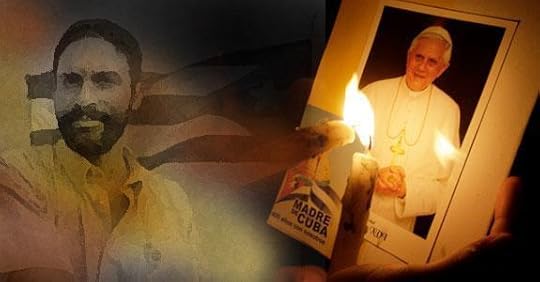
Cuba's Conscience: Oscar Biscet in his own words | Jordan Allott | Catholic World Report
On March 11, 2011 Dr. Oscar Elias Biscet was released from a maximum-security prison outside Havana. The release of Dr. Biscet, who had spent all but 36 days of the past 11 years in a Cuban prison cell, was negotiated with the help of the Catholic Church and the government of Spain. Dr. Biscet has been called the number-one enemy of the Castro brothers for his non-violent opposition to the Cuban government's human rights violations and its systematic use of forced abortion. In 2007, Dr. Biscet received the Presidential Medal of Freedom in the United States, and he is a finalist for the 2011 Nobel Peace Prize. Because the Cuban government allows its citizens only very limited use of the Internet and other technologies, this interview with CWR was conducted over several weeks and has been translated from Spanish into English.
[Editor's Note: This interview originally appeared in the December 2011 issue of Catholic World Report.]
Six months have now passed since you were released from prison. Can you tell us what this time has been like for you and your family, both spiritually and in terms of everyday life?
Oscar Biscet: You mention two important terms in this question—one is freedom and the other one is the family. Both of them are the product of God's boundless love for human beings. In the Book of Genesis it says: "Then God said, 'Let us make mankind in our image, in our likeness'… male and female he created them." This poetic expression encompasses a profound philosophy and a scientific approach to understanding the world, so necessary nowadays for the behavior of the human race. God is the father of the human family and a paradigm of absolute freedom in the universe. For that reason I positively value having been released in order to be able to live daily life, good [and] bad, with my wife and with the rest of my family—and above all to be able to [work for] fundamental rights for my family and for my people.
Of the 75 opposition leaders, journalists, and librarians arrested during Cuba's 2003 Black Spring, you were one of the last prisoners of conscience to be released. Can you describe the process of your release? During this process, you consistently refused release in exchange for exile. Was that a difficult decision?
Biscet: The process for my release was long, traumatic, and distressing for many.… The institutions involved were not able to carry out a balanced negotiation to benefit the political prisoners while they were waiting to be released. I had made the decision not to leave my country 14 years ago, when in 1998, I was expelled from the hospital where I was working for the mere fact that I peacefully defended the life of the unborn children. They also retaliated against my family. Friends from other nations offered me political asylum but I rejected their proposals. This was very hard because at that time my relatives were being tortured by the Castro regime.
Can you describe your emotions after finally being released in March?
Biscet: It was very pleasant. I was happy and calm because I was returning to my home. At the same time, I was worried, as I had my hopes pinned on [securing] human rights and the freedom of the Cuban people.
How are inmates, both political prisoners and general prisoners, treated inside Cuban prisons? Do you have any stories to share from your time as a prisoner of conscience?
March 11, 2012
20% off New Books, Films and more (now through March 13th)

20% off New Books, Films and more!
Offer ends Tuesday March 13th, 2012 at 12:00 midnight EST.
These prices are available online only through Ignatius.com
You've probably been following the controversy regarding the HHS mandating requiring Catholic institutions to pay for contraceptives for their employees. That's launched a firestorm of protests. And it's led to something few people anticipated--a public debate about contraceptions impact on society. Adam and Eve After the Pill, by Mary Eberstadt, tackles the issue head on.
Go behind the walls and into the lives of key people to learn from the new film what goes on in the hidden world of The Vatican. And learn about Jacques Maritain, the famous Catholic philosopher in the new DVD, Jacques Maritain or delve into gripping story of Kurt von Schuschnigg in When Hitler Took Austria. These great titles and more (below the fold) are all available for 20% off!
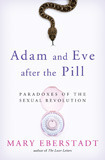 Adam and Eve After the Pill
Adam and Eve After the Pill
Paradoxes of the Sexual Revolution
Mary Eberstadt
Adam and Eve after the Pill examines as no book has before the seismic social changes caused by the sexual revolution. In examining human behavior in the post-liberation world, Eberstadt provocatively asks: Is food the new sex? Is pornography the new tobacco? Adam and Eve after the Pill will change the way readers view the paradoxical impact of the sexual revolution on ideas, morals, and humanity itself. Also available as an e-book.
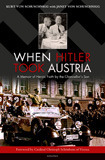 When Hitler Took Austria
When Hitler Took Austria
A Memoir of Heroic Faith by the Chancellor's Son
Kurt & Janet von Schuschnigg
In March 12, 1938, German troops marched into Austria as Adolf Hitler prepared to annex the country. Austrian Chancellor Kurt von Schuschnigg, who had opposed the Nazi take-over of his homeland, was placed under house arrest and subsequently sent with his wife to Sachsenhausen concentration camp. This is the gripping story of von Schuschnigg and his family as told by his son, who came of age during these dramatic events. His memoir is a tribute to the faith, hope and perseverance of his family and the many people who took great risks in order to help them survive Nazi rule and the Second World War. Also available as an e-book.
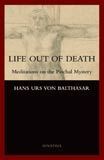 Life Out Of Death
Life Out Of Death
Meditations on the Paschal Mystery
Hans Urs von Balthasar
Death and dying are inseparably linked with life. They are self-evident and at the same time cannot be grasped by reason alone - they are ordinary, and yet so incredible. In these meditations, the acclaimed theologian Hans Urs von Balthasar investigates this great mystery. He asks about the contradiction, inherent in all men, of wishing to achieve something "imperishable in transitoriness" and gives an answer culled from the Scriptures and from the Church Fathers. Also available as an e-book.
 Choirs of Angels
Choirs of Angels
Coloring Book
Katherine Sotnik
Lovely line drawings based on paintings by great masters grace every page of this coloring book. Accompanying each image is a quotation from the Holy Bible. Children will learn about the angels as they are vividly described in both the Old and New Testaments. They will come to know the angels as beautiful beings who worship, adore and serve the Lord in countless ways.
What Your Money Means
And How to Use It Well
Frank J. Hanna
Countless books tell you how to make money: only this one turns to the wisdom of the ages to illuminate for you the reasons you have money in the first place, and the role it's meant to play in your life and in the lives of others. American entrepreneur and philanthropist Frank Hanna introduces you to a lean, no-nonsense explanation of the meaning of your money, and a guide for dealing with it constructively.
DVDs
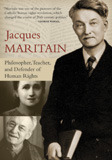 Jacques Maritain
Jacques Maritain
Philosopher, Teacher, and Defender of Human Rights
This film tells the story of Jacques Maritain, a highly respected French philosopher, teacher and writer in the 20th century, who was a principal exponent of Thomism and an influential interpreter of the thought of St Thomas Aquinas. He lived for many years in the United States, and taught at Princeton University and Columbia University. After WWII, he served as the French ambassador to the Vatican, and he also helped draft the United Nations Universal Declaration of Human Rights (1948).
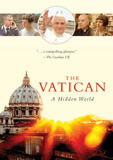 The Vatican
The Vatican
A Hidden World
Pope Benedict XVI is the spiritual leader of over a billion Catholics and the sovereign of the smallest state in the world. Many dedicated people work here under his leadership. However, what do we know of these people who keep the Vatican's wheels oiled, are subordinated to its rhythms, guarding its secrets, while giving their lives in sacrifice? Eight people are at the centre of this documentary, enlightening us about this mysterious place through their personal stories. The protagonists enjoy a singular access in the Vatican or even to the Pope himself. To the broader public, their personal experiences convey a unique access to this extraordinary place.
MUSIC
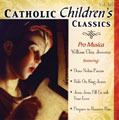 Catholic Children's Classics
Catholic Children's Classics
This latest collection from the popular "Catholic Classics" series features the celestial voices of the Pro Musica Youth Chorus-a gifted, experienced choral group, led by accomplished artistic director, William Chin, who led the group on tours nationally and internationally, including a recent performance in Carnegie Hall. The children are accompanied by a talented array of instrumentalists.17 Hymns include Dona Nobis Pacem, Ride On King Jesus, Ave Maria, Jesu Jesu, Fill Us with Your Love, Magnificat, Prepare to Receive Him, and 11 more gems.
The Anti-Catholic "Pontifical Catholic University of Peru"
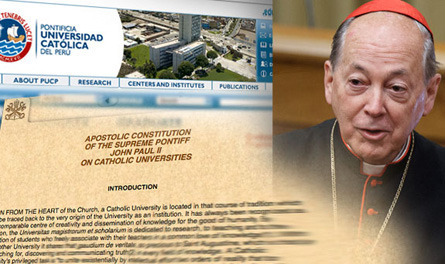
A former student explains the Vatican's struggle to restore the Catholic identity of Peru's most important university
by Carlos Polo
The escalating struggle between the Vatican and the Pontifical Catholic University of Peru (PUCP) over the reform of its statutes may appear to be nothing more than a conflict over administrative differences, and an obscure papal document known as Ex Corde Ecclesiae. In reality, the conflict is about the very nature and identity of a Catholic educational institution. The PUCP, in short, must decide if it wishes to be Catholic, or not. The fate of the country's most important university, as well as millions of dollars in assets, is riding on the outcome.
March 9, 2012
Jesus drives sin out of our souls, making us holy temples
A Scriptural Reflection on the Readings for Sunday, March 11, 2012, the Third Sunday of Lent | Carl E. Olson
Readings:
• Ex 20:1-17
• Ps 19:8, 9, 10, 11
• 1 Cor 1:22-25
• Jn 2:13-25
Parish bulletins are not usually memorable. But at least one is stuck in my memory banks. Several years ago, visiting a parish, I was surprised to read a pointed message from the pastor in the bulletin. After lamenting several moral failings within the parish, the priest wrote (and I paraphrase): "And so I have concluded that everyone could use a refresher course in how to live as a Christian should." And then he listed the Ten Commandments.
Is it fair to say we hear about the Ten Commandments far more often than we hear or read the actual commandments? I think so. Thankfully, we get to hear them in today's Old Testament reading. There were, of course, hundreds of other commandments given by God to Moses at Mount Sinai. But the Decalogue—the "ten words"—form the moral heart of the Mosaic covenant and the Law.
The historical background and spiritual context for the commandments was the liberation of the Israelites from four hundred years of slavery in Egypt. Together, the commandments described and prescribed "the conditions of a life freed from the slavery of sin" (Catechism of the Catholic Church, par 2057). But the commandments were not to be followed out of mere fear or in a state of blind subjection. Yes, God stated that he is a "jealous God" who punishes wickedness, but he also made it known that he bestows mercy "on the children of those who love me and keep my commandments." Far from being a distant God without care or concern, the one true God is active and involved in human history; he is a Creator who loves his creation.
The love and obedience due to God are to be demonstrated by man through holiness and worship—that is, through right relationships with other men and with God. The establishment of the Sabbath was unique. No other people of the ancient world had anything like it. They measured time based on lunar phases and the solar cycle, but the Sabbath is not based on the sun, moon, or stars. Its creation is rooted in the seven days of creation and points to the Creator outside of time and beyond nature—the One who created both time and nature.
For first century Jews, the Temple in Jerusalem was God's dwelling place on earth, the house of the Creator and the embodiment of God's covenant with King David (cf. 2 Sam 7:8-16). It was where sacrifices were made for the atonement of sins. But during the time of Christ it was also the home of a lucrative system of money changing and the selling of animals to pilgrims who came to offer sacrifices during Passover and other feasts. There were fees for changing currency and for having the to-be-sacrificed animals inspected and confirmed as pure and unblemished according to the Law. Price gauging was common. The house of God had become, in many ways, a supermarket and a "den of robbers" (Jer 7:11).
The actions of Jesus are shocking, even violent. But it is the righteous violence of love, the zealous passion of a Son for his Father's house. Such love cannot give sin free reign or allow impurity to go unchallenged. Casting out the moneychangers, St. John Chrysostom wrote, was not "the actions of a pretender but of one choosing to suffer everything for the order of the house."
In fact, Jesus' actions in the Temple were part of the announcement, initially cryptic but clear in hindsight, of His death and Resurrection. He is "the true temple of God" (CCC, par 1197), and he came to establish a new law, a new covenant, and a new household. This was, Paul told the Corinthians (in today's Epistle), a stumbling block to the Jews and foolishness to Gentiles.
Jesus is the only one able to drive sin and impurity out of our souls, making us holy temples. Who better to show us how to live as a Christian—a disciple of Christ—with love and obedience?
(This "Opening the Word" column originally appeared in the March 15, 2009, edition of Our Sunday Visitor newspaper.)
Cremation: Recalling Some Basic Catholic Truths
Cremation: Recalling Some Basic Catholic Truths | John M. Grondelski | Homiletic & Pastoral Review
The Church rescinded its prohibition on cremation, but does not consider burial and cremation equally valid methods.
The Newark Star-Ledger reports that acceptance of cremation is growing: 40% of deaths in America (and 40% in New Jersey) result in cremation. In some Western states, the rate reaches 70%. 1
Most writers note that the Church rescinded its prohibition on cremation in 1963, and Catholic acceptance of cremation is fast mirroring the general population. In light of the seemingly growing Catholic acceptance of cremation, it is appropriate for priests to bring some points to the attention of the faithful. While November, with its focus on prayer for the dead, seems especially appropriate, the pastoral need to address this phenomenon is year-round.
The Church encourages burial and discourages cremation
The first point that merits emphasis is simply that the Church does not consider earth burial and cremation equally valid methods of dealing with the body of a deceased Christian. The Church considers burial to be its norm; cremation is an exception. 2
For a long time, those who chose cremation did so for ideological reasons: they were often materialists, intent on rejecting the Christian notion of the dignity of the body and its doctrine of the resurrection of the dead. Belief in such principles was obviously incompatible with Catholic faith. When the Holy Office lifted its prohibition on cremation in 1963, it did so because it judged that now other reasons (e.g., limited land) motivated people seeking cremation, reasons that had nothing to do with explicitly rejecting basic elements of Christian anthropology and eschatology.
At the same time, the Church did not say that cremation was now the functional equivalent of burial in terms of dealing with Christian remains. One suspects that the selective way in which the changed teaching on cremation was received was a little like the change in mandatory Friday abstinence which took place at roughly the same time.
Tough Questions, Timeless Moral Truths
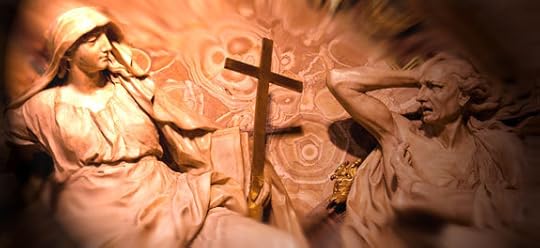
Tough Questions, Timeless Moral Truths | Jim Graves | Catholic World Report
An interview with Fr. Brian Mullady about same-sex marriage, contraception, the death penalty, and other pressing moral issues
Father Brian Mullady is a priest of the Western Province of the Dominican Order. Ordained in 1972, he has served as a parish priest, high school teacher, seminary professor, retreat master, and mission preacher. He has been featured on EWTN, and is a prolific author who has for many years penned a question-and-answer column for Homiletic & Pastoral Review. He is not only well-grounded in the teachings of the Catholic Church, but also has a special talent for articulating them to the faithful. He recent spoke with Jim Graves for CWR, offering the Catholic perspective on some key moral issues currently being debated in American society.
CWR: The states of Washington and Maryland recently allowed same-sex couples to obtain marriage licenses, becoming the seventh and eighth states in the union to do so. Initiatives are underway to legalize same-sex marriage in additional states. Critics of the Catholic Church's position against same-sex marriage argue that it wants to deny equal rights to people who identify themselves as homosexual. How do you respond? Father Brian Mullady: There are no rights to things that are contrary to the natural law, and same-sex marriage is contrary to the natural law. Homosexual activity is a sin. It's not the same as racial equality.
In lieu of marriage, some support civil unions for same-sex couples, basically granting same-sex couples the same legal standing as married couples without calling it marriage. Is that an acceptable alternative for Catholics?
Father Mullady: The state may choose to recognize something as marriage in regards to the civil effects of marriage, such as property sharing, or common insurance or retirement, but that would be silly to do so. It isn't the same as marriage. The civil effects should be connected to the true nature of marriage for the law to be correct and to encourage proper marriage in society.
Some states, like California, not only allow same-sex couples to adopt children but even encourage it. Is this something Catholics can accept?
Father Mullady: To have a child adopted by a couple in a same-sex relationship is also contrary to the natural law and the true nature of marriage. It's not a healthy way for a child to first observe marriage.
The Catholic bishops have been outspoken in their opposition to the recent Health and Human Services mandate that Catholic employers offer contraception, sterilization, and abortion-inducing drugs to their employees in their health insurance policies. The mandate and the surrounding controversy have brought the issue of contraception into presidential politics. Why does the Church teach that artificial contraception is wrong?
Carl E. Olson's Blog
- Carl E. Olson's profile
- 20 followers


